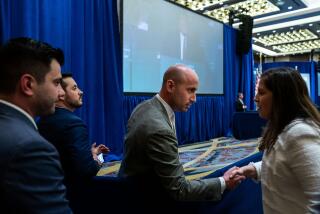Abercrombie launches anti-bullying campaign, tries to quell criticism

Teen retailer Abercrombie & Fitch is trying to overcome criticisms that the company excludes “uncool” customers by sponsoring an anti-bullying campaign.
The clothing brand said this week it will provide college scholarships, through the National Society of High School Scholars Foundation, to young people who have persevered in the face of bullying and excelled academically.
The move may not be enough to quell the backlash as shoppers slam the company for failing to carry larger sizes. That rising outrage also brought back comments Abercrombie CEO Mike Jeffries made in 2006 to Salon describing the good-looking customers they are targeting.
Top 10 richest people ever led by 14th century African king
“In every school there are the cool and popular kids, and then there are the not-so-cool kids,” he said in 2006. “Candidly, we go after the cool kids. We go after the attractive all-American kid with a great attitude and a lot of friends. A lot of people don’t belong [in our clothes], and they can’t belong.”
“Are we exclusionary?” he added. “Absolutely.”
Those remarks have resurfaced occasionally over the years when Abercrombie faces a controversy or experiences difficulties. A disappointing first quarter announced last month, which saw a loss of $7.2 million and overall sales plunging 9%, has not helped quiet the uproar this time around.
Last year, a lawsuit filed by a former employee made headlines after it was revealed that Jeffries mandated what kind of underwear the company flight crew could wear, how toilet paper should be folded on the company jet, and also where his three dogs sat on plane rides.
ALSO:
Amazon to roll out home delivery of groceries in L.A.
Self-doubt hinders career advancement for women, survey says
Saudi prince sues Forbes magazine over his rank on billionaires list
Follow Shan Li on Twitter @ShanLi
More to Read
Inside the business of entertainment
The Wide Shot brings you news, analysis and insights on everything from streaming wars to production — and what it all means for the future.
You may occasionally receive promotional content from the Los Angeles Times.











